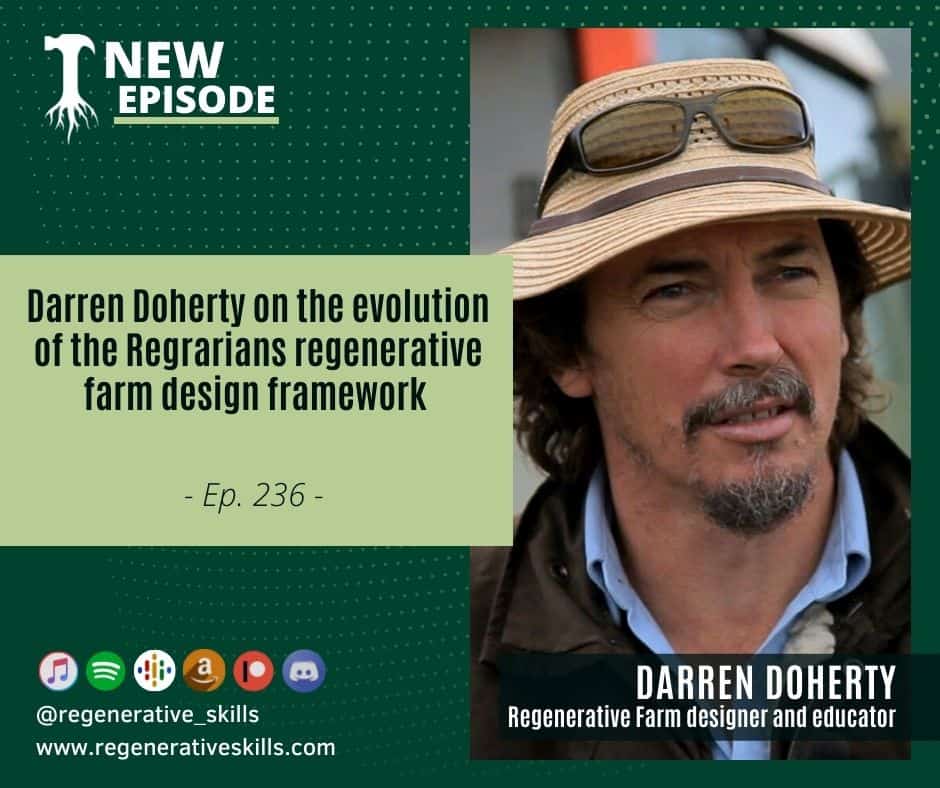
As we continue through this series on regenerative design we’ve taken a look at small and residential scale projects with Rob Avis of Verge Permaculture, last week we explored the homestead scale with Drew Grim from The Schoolhouse Life, and this week we’re getting into the larger scale of properties and how regenerative design can be applied to farms.
For this subject, my go-to source for practical and professional farm design is always Darren Doherty.
Darren describes himself as a 5th generation Bendigo region land manager, developer, author & trainer who has been involved in the design & development of well over 3000, mostly broadacre projects across 6 continents in more than 50 countries, ranging from 1 million hectare cattle stations in Australia’s Kimberly region to 110,000 acre Estancia’s in Patagonia, EcoVillage developments in Tasmania to public:private R&D agroforestry & education projects in Viet Nam, novel AG Machinery development + family farms across the globe with a range of private, corporate, government & non-profit clients.
Darren is the originator of the Regrarians Platform® process which outlines a strategic & logical process to the development of regenerative agricultural systems and is the program extensively outlined in the Regrarians Handbook which is now being released chapter by chapter as an eBook; along with the Regrarians Workplace which is the online content management and professional liaison platform for all client, associate, training and alumni relations.
Though I’ve interviewed Darren a couple times before on this show, this session in particular was very timely for me as I’m currently working through the Online REX program for the design of my own property while guiding our Climate Farmers Pioneer group through the same process. With a more intimate understanding of Darren’s design system I was looking to gain insight to the lineage of his learning and experience as well as the mind behind the process.
Darren has a unique way of teaching in that many of his answers to questions come in the form of stories and explain not only the answer you were looking for but the history and context around it so that you can develop your own answers in the future.
This interview takes a much more philosophical bend than I had anticipated going into it, and as a result I learned a lot more than what I had expected since I’m now quite familiar with his teaching material. So get comfortable for this one and just let the stories unfold
Links:
http://www.regrarians.org/webinars-ron/
